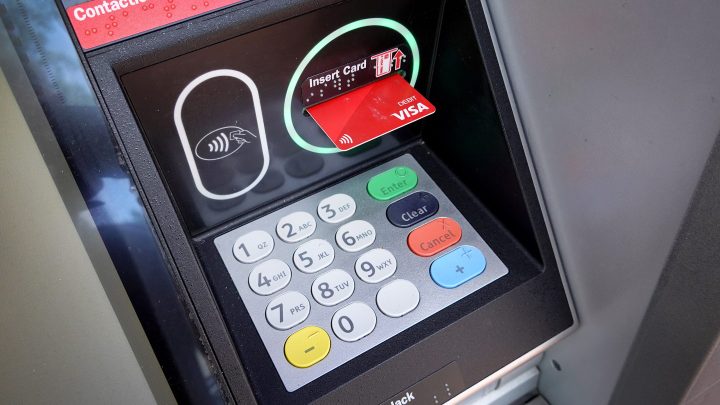
What do bank earnings tell us about the economy?

It’s the second week of April, which means spring is in the air and daffodils, cherry trees and lilacs are blooming. Here at Marketplace, it also means earnings season is starting.
Corporate profit-and-loss reports for the January-to-March quarter kicked off in earnest Wednesday with Delta Air Lines, which did quite well. Revenue rose 6% and earnings per share nearly doubled from a year ago.
The first sector to report en masse is mega-banks: JPMorgan Chase, Wells Fargo and Citigroup on Friday, Goldman Sachs on Monday, Bank of America and Morgan Stanley on Tuesday.
So, what do they have in store? And what’s it say about the economy, interest rates and the all-important American consumer?
Banks are kind of like economic diagnosticians. They assess the health of companies and consumers as they take in deposits, lend money on credit cards and business expansions, manage corporate mergers and stock offerings.
“Banks really are bellwethers of the economy,” said Karen Petrou, managing partner at Federal Financial Analytics. “Biggest issues for the larger banks: interest rates, which we — at least, I — know are going to be higher for longer. And that helps to improve bank earnings.”
That’s because the banks make more money on the interest they charge borrowers. But Petrou said there’s also a downside to interest rates staying high: credit losses.
As consumers keep spending, their credit card balances are rising. Ken Leon at CFRA Research said while that does boost income for banks, it also comes with some delinquencies.
“But it’s delinquencies or problems in a healthy economy, not one that is leaning or in any kind of recession,” he said. Right now, Leon said rising delinquencies don’t threaten banks’ profitability.
But they do offer a window on the resiliency of U.S. consumers, said Quincy Krosby, chief global strategist at LPL Financial.
“We know that the low-wage earners are having difficulty. What we’re looking for now: Has it crept up the wage scale, middle-income wage earners with late payments or delinquencies?” she said.
In the last round of earnings in January, banks were warning about a possible recession and how interest rate cuts could hurt the bottom line.
Fast forward three months, and the focus is on the Federal Reserve keeping interest rates high in an economy healthy enough to keep consumers spending it up.
There’s a lot happening in the world. Through it all, Marketplace is here for you.
You rely on Marketplace to break down the world’s events and tell you how it affects you in a fact-based, approachable way. We rely on your financial support to keep making that possible.
Your donation today powers the independent journalism that you rely on. For just $5/month, you can help sustain Marketplace so we can keep reporting on the things that matter to you.











